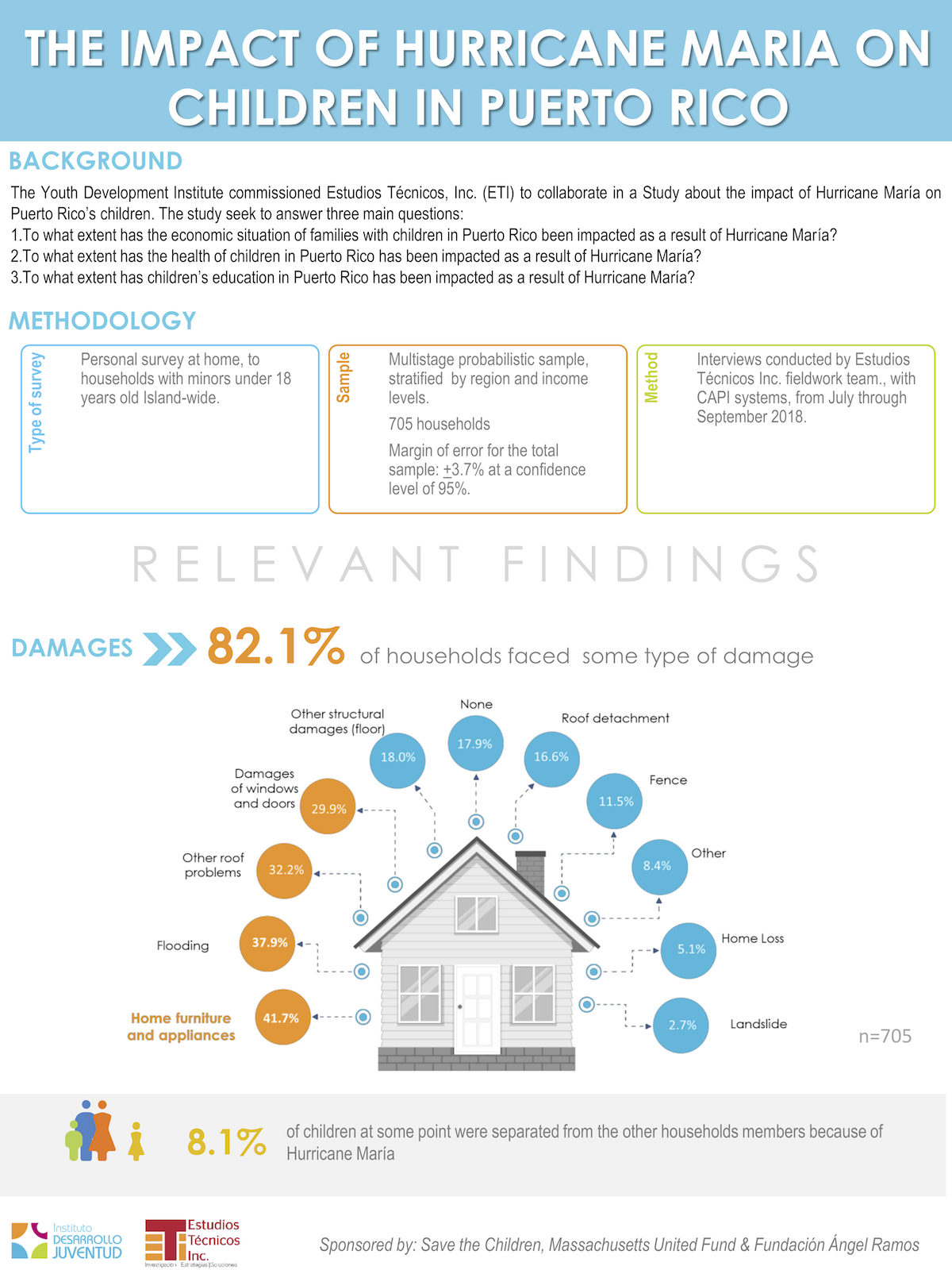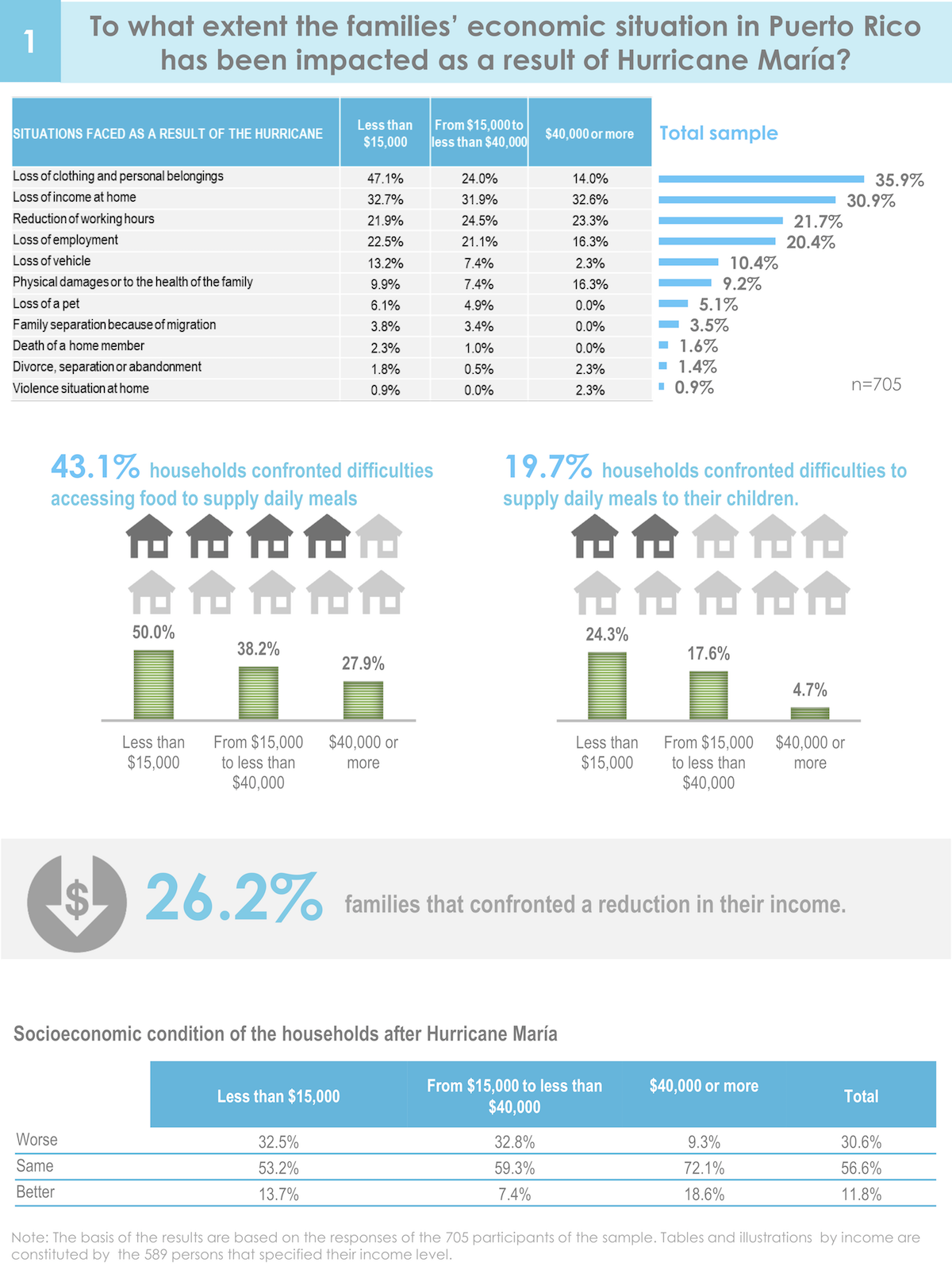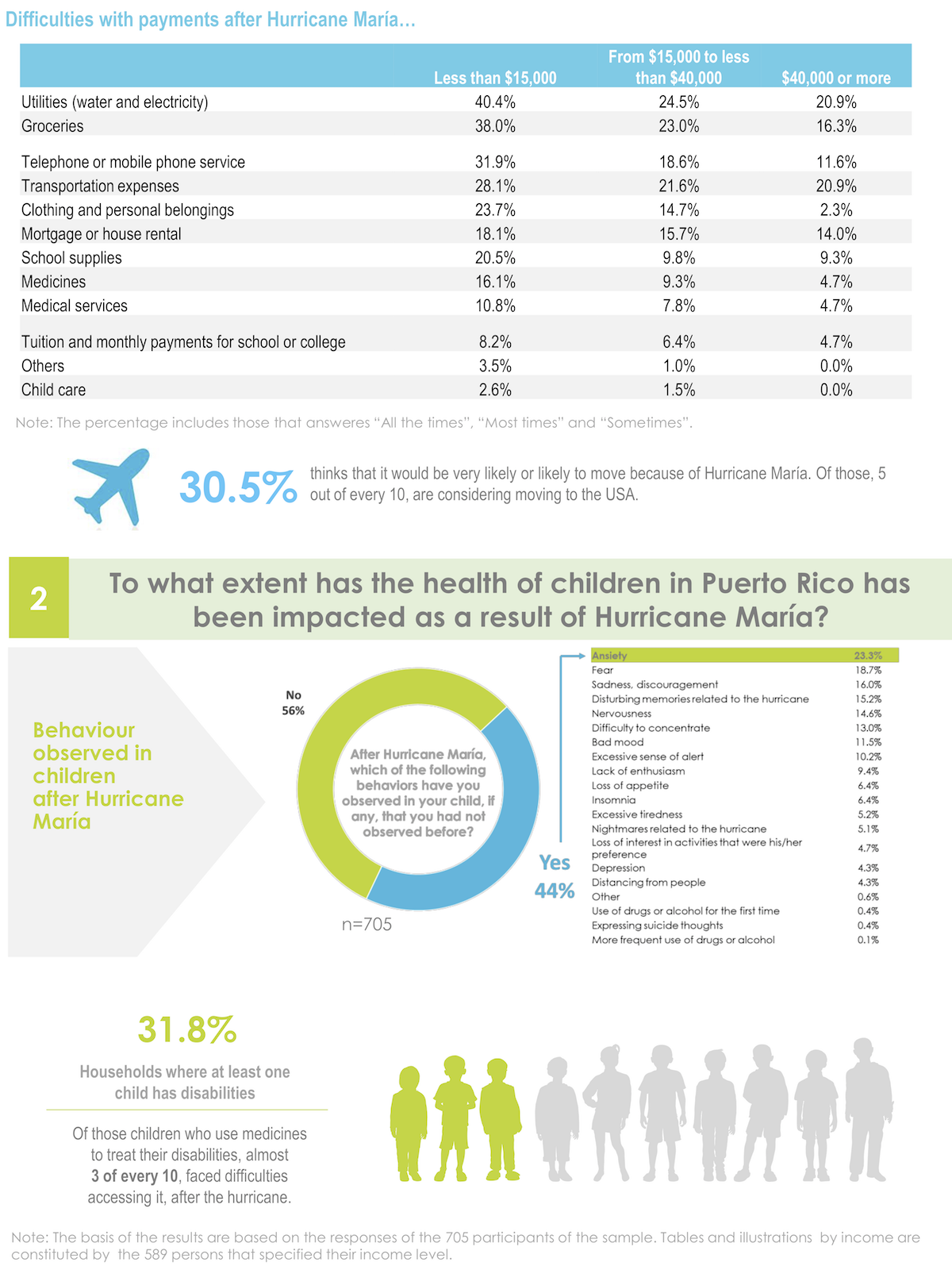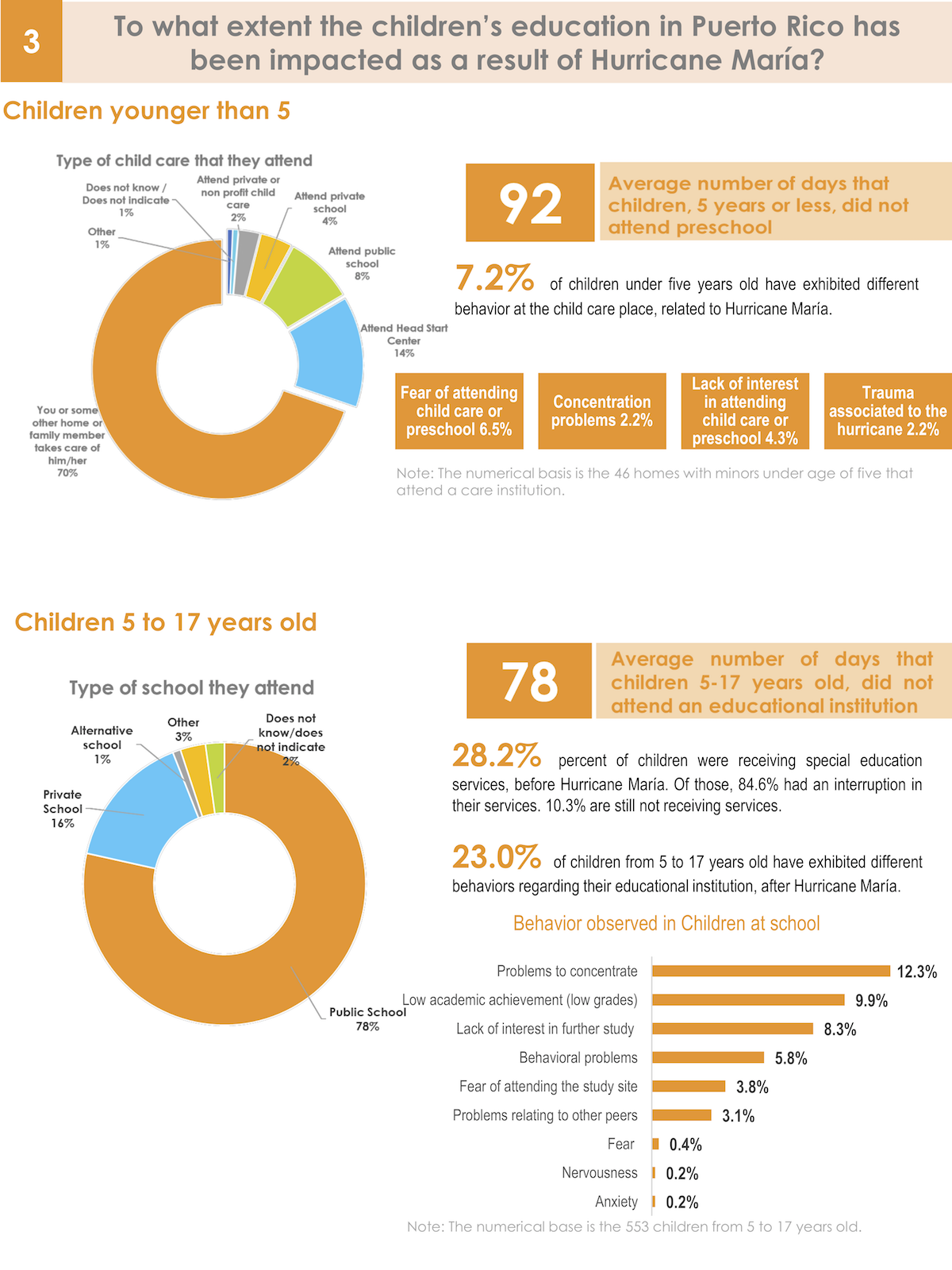Latino Rebels received the following media release on Tuesday from the Youth Development Institute of Puerto Rico:
WASHINGTON, D.C. – Before Hurricane María, Puerto Rico had the highest level of childhood poverty in the nation at 57 percent. A new study finds that increased economic hardship and uncertainty, combined with inadequate access to health and education, threatens the ability of children (already traumatized by the hurricane) to thrive. Economic precarity will also hinder the island’s ability to recover for the foreseeable future.


The study, commissioned by the Youth Development Institute of Puerto Rico, finds that several months after the hurricane swept through the island, Puerto Rico’s most impoverished children are living in conditions not seen in the United States in over half a century.


“This study shows that families with children, who were facing significant challenges before the hurricane, are facing even more bleak conditions today. This type of economic insecurity is what has led to families leaving in droves over the last decade, and what will continue to drive it if comprehensive policies are not put into place immediately,” said Anitza Cox, Director of Analysis and Social Policy, Estudios Técnicos.
The findings, along with recommendations to address the urgent situation, were presented during an event co-sponsored by Congresswoman Jenniffer González Colón (R-PR) and Congresswoman Nydia Velázquez (D-NY) and featured a panel of social policy experts today on Capitol Hill.


After the hurricane, one-third of households had reduced monthly incomes due to loss of employment and fewer work hours. This loss of income disproportionately impacted low-income families. According to the study, as a result of the economic impact of the hurricane, low-income families in Puerto Rico had difficulty accessing the most basic needs, including paying utilities (40%), purchasing food (38%), buying clothing (24%) and securing school materials for children’s education (21%).
“Our initial findings indicate that Puerto Rico’s poorest families will not have the financial resources to recover. Not addressing the needs of vulnerable household will have negative repercussions not only on the individual children who live in them but also for the long-term economic recovery of the Island,” said Amanda Rivera, Executive Director of the Youth Development Institute.
This issue of poverty combined with a rapidly shrinking population of children —Puerto Rico’s child population was reduced by 35% between 2007 and 2017— already poses a threat to Puerto Rico’s economic development.


The Youth Development Institute is calling for measures like the extension of the Child Tax Credit (CTC) for families of one and two children in Puerto Rico, which would provide direct relief to working, low-income families.
The CTC “will provide working low-income families in Puerto Rico with a much needed economic boost, making work pay, and helping them get back on their feet. This is a common-sense policy that has bipartisan support, is good for kids, and promotes work in an island where poverty and the lack of opportunities are pushing people to leave,” said Dr. Maria Enchautegui, Economist and Acting Dean of the Department of Economics, University of Puerto Rico, Río Piedras.
The findings were based on interviews of more than 700 families throughout the island during July, August, and September of this year. The study is not yet final, but authors of the study were compelled to release preliminary findings to sound the alarm about the conditions faced by Puerto Rico’s neediest children.
***
Instituto del Desarrollo de la Juventud (IDJ) is a nonprofit organization working to advance public policies at the federal and local level to improve the lives of children and youth in Puerto Rico, with a focus on the 56% of children in Puerto Rico who live in poverty. IDJ’s work includes collection and dissemination of data; development of research-driven public policy recommendations; and advocacy work that is informed by both data and the voices of the people IDJ represents. IDJ is the only organization focused on policy and advocacy around children’s issues in Puerto Rico. Learn more at www.juventudpr.org


